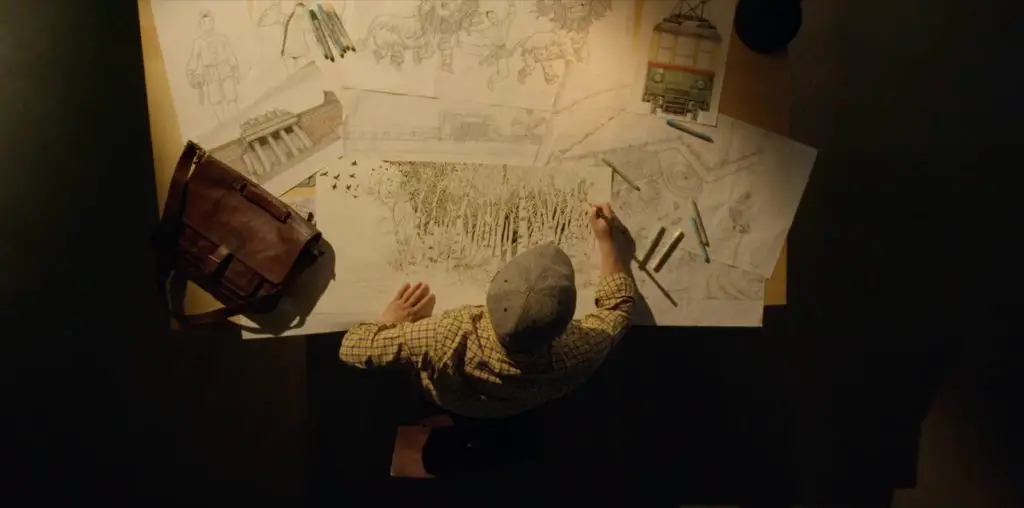
The event which took place in Derry, Northern Ireland on January 30th 1972 is one the Irish can’t forget and the British don’t want to remember. On that afternoon, a civil rights march turned into a blood-spattered catastrophe when the marchers – civilians on both sides of the Catholic/Protestant divide – were disrupted by rock-throwing “hooligans,” and then fired upon by British Paratroop Regiment soldiers. The result was an explosion of the 700-year conflict between Ireland and Britain and the origin of what is called The Troubles, a cycle of violence that has lasted for thirty years now but seems, like the Isræli-Palestinian conflict, as if it will go on forever.
The elite British soldiers, known as “Paras,” were based in Belfast and had developed a fearsome reputation as harsh enforcers on the besieged streets of Northern Ireland. New to the city of Derry, the Paras were all too ready for action; a goal of 500 arrests had been set by the top brass. Violence was assured. While we see determined civil rights leader Ivan Cooper (James Nesbitt) saying with tragically high hopes that the march will be “just a Sunday afternoon stroll,” various Paras are seen declaring “We’re going to pinch hundreds of these hooligans” and “If the shooting starts, we’ll shoot plenty of our own.” From the first minutes of “Bloody Sunday,” the stage is set for chaos and mayhem. (As the marchers first congregate, we even glimpse the marquee of a cinema showing the 1971 classic “Sunday Bloody Sunday.”)
Bloody Sunday was one of those watershed historical events that seems, in retrospect, to have been inevitable. As controversial as the specifics of the day remain, it must be said in fairness to the British that, while the vast majority of the marchers did attend for the right reasons, there were also plenty of kids there who wanted nothing more than to raise hell. Whoever was at fault, though, the end result was twenty-seven marchers wounded and thirteen dead.
Writer/Director Paul Greengrass has crafted “Bloody Sunday” as a docudrama of punishing immediacy, a ground-level anatomy of a disaster. Like Black Hawk Down – though not as explicitly gory – the film makes every possible effort at absolute realism, throwing us right into the middle of the madness. Every last member of the cast is a model of unaffected naturalism, and most are unknowns except for the rivetingly intense Nesbitt (Waking Ned Devine, Welcome to Sarajevo). Special mention should also be made of the great Nicholas Farrell, who plays the conflicted Brigadier MacLellan, the man unlucky enough to be in charge of the Paras. (As for the marchers, finding thousands of impassioned extras to help commit this re-enactment to film was clearly an easy task. Many of the people we see in “Bloody Sunday” were actually present on Bloody Sunday.)
Given that this is a minute-by-minute account of an operation gone wrong, character development is stripped to almost nothing – these people are the situation they’re in; they are what they do in that situation. Again as in Black Hawk Down, we are often unsure who exactly is who; the very strong Irish accents only add to the confusion. But Greengrass’ only truly questionable stylistic choice is his endlessly repeated use of fades-to-black throughout the film. Meant to elide time, they merely distract, sometimes interrupting scenes and even lines of dialogue before they’re completed.
Still and all, “Bloody Sunday” is a gripping experience, and often downright sickening. There’s a queasy pull to watching as the marchers grow more and more provoked and the British soldiers, in turn, progress from fire hoses to rubber bullets to C/S gas to live ammunition sprayed into the roiling Irish mob. By the time the British higher-ups are looking for any weapons they can find, or plant, on the marchers – one captain barks “We’ve got to find justification” for the wanton shooting – it’s clear whose side Greengrass is on. Many British officers were decorated by the Queen for their brutality on Bloody Sunday. Meanwhile the IRA, in Ivan Cooper’s words, were “given the biggest victory they’ll ever have.” In fact, both sides lost on that day. They are still losing to this day.
